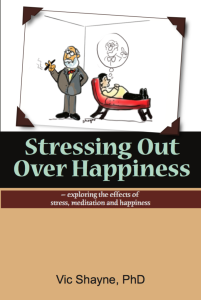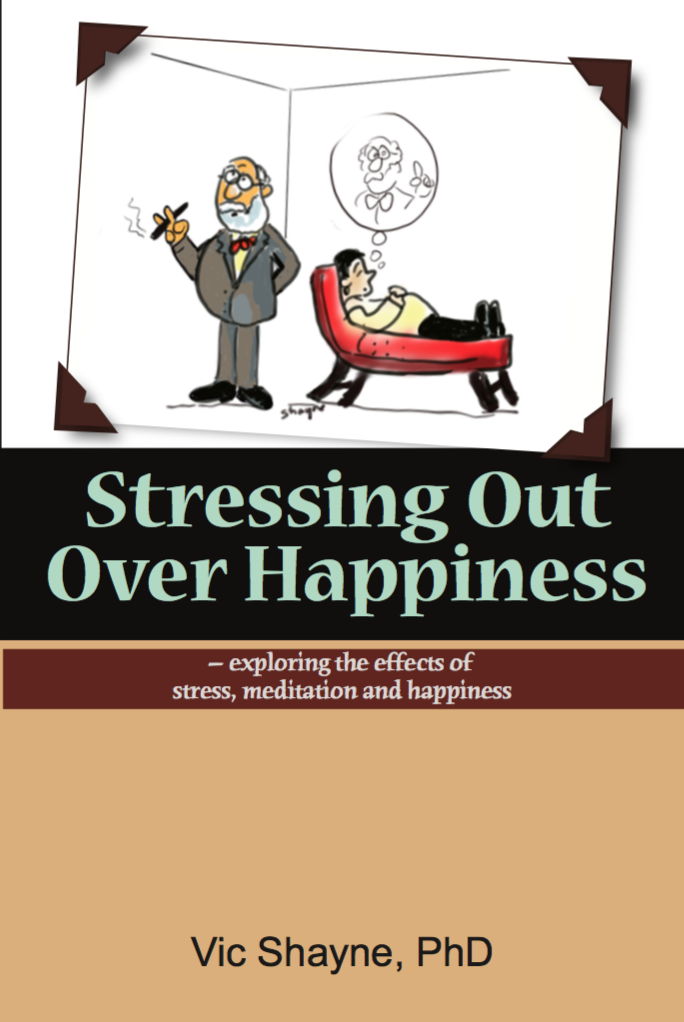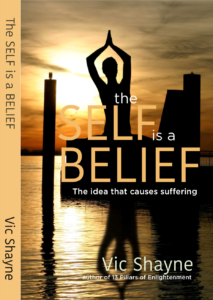 My newest book, Stressing Out Over Happiness, is the culmination of several years of research and writing. It began as I was doing research for a novel (not yet published as of this writing) and I wanted to delve in to the protagonist’s particular sense of angst and trauma. As I was doing this, I thought that all this research would make a good book in itself, as a nonfiction self-help book.
My newest book, Stressing Out Over Happiness, is the culmination of several years of research and writing. It began as I was doing research for a novel (not yet published as of this writing) and I wanted to delve in to the protagonist’s particular sense of angst and trauma. As I was doing this, I thought that all this research would make a good book in itself, as a nonfiction self-help book.
Stressing Out Over Happiness is primarily about three things: Stress, Meditation and Happiness. It is a look at stress and happiness from the vantage point of several sciences, including psychology, neuroscience, biology, psychoneuroimmunology, and quantum physics. And, I bring into play the work and teachings of sages throughout history that now seem to be substantiated by leading-edge science.
If you are stressed out or sick, this book will help you. If you are unhappy, depressed or anxious, this book will be great for you to read. If you wonder why self-help, positive thinking isn’t doing a thing for you, this book is perfect for you.
If you are wondering about the meditation part of the equation, then let me tell you. There are two types of Buddhist meditation that have been studied at major universities in conjunction with happiness and stress reduction. I discuss these in the book. One is called mindfulness meditation and the other is loving-kindness meditation (also known as metta, or compassion meditation). While these are not the only types of meditation that are in existence, these are the ones that are most studied and have yielded empirical results.
Within a week or so, a companion to this book will be released. It will cover some of the same material but a little more in detail and with a less formal and more exploratory angle. The idea is allow you to think about the subject matter and to stimulate your impressions and ideas.
Happy reading!


